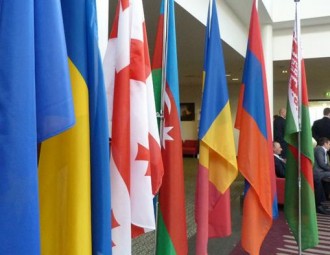Opinion: Minsk anticipates offsetting CEI advantages against EAP disadvantages
 dw.de
dw.de
Minsk regards its participation in the Central European Initiative, a European initiative with similar priorities to the Eastern Partnership, as unlikely to make the Kremlin nervous.
The Belarusian government hopes to strengthen the CEI role in the Eastern European region and, possibly, intercept some areas of cooperation from the Eastern Partnership. Minsk aspires for the absence of a negative reaction from the Kremlin to its stepped up participation in the CEI.
On June 16th, 2016, the Council of Foreign Ministers of the Central European Initiative unanimously voted for Belarus’ chair in 2017.
Belarus is a party to the Central European Initiative since 1996. This sub-regional association includes 18 members - 9 EU member states, 6 Balkan and 3 post-Soviet states. The CEI main objective is to promote European integration and rapprochement between the EU and other European countries, non-EU members. To date, The CEI mainly focused on the Balkans.
During the annual meeting of the CEI Foreign Ministers, Belarusian Foreign Minister Vladimir Makei met with Foreign Minister of Bosnia and Herzegovina Igor Crnadak, Federal Minister for Europe, Integration and Foreign Affairs of Austria Sebastian Kurz, Deputy Minister of Foreign Affairs and European Integration of Moldova Lilian Darius and CEI Secretary General Giovanni Caracciolo di Vietri.
Belarus declares its interest in deepening practical cooperation with the CEI member states in the field of energy and the environment, sustainable development, science and technology.
After the launch of the Eastern Partnership initiative by the European Union in 2009, Minsk promoted closer cooperation between the CEI and the Eastern Partnership, due to some matching priorities of these initiatives. In addition, some states - Belarus, Moldova and Ukraine - are members of both initiatives - the CEI and the EAP.
Minsk expects a mild reaction from the Kremlin to the participation in the Central European Initiative of the post-Soviet states, including Belarus. The Kremlin has been neutral towards the CEI, in contrast to random criticism of the EAP. For instance, Russia’s Foreign Minister Sergei Lavrov at the International Economic Forum in St. Petersburg once again emphasised Russia’s negative attitude to the EU policy towards the post-Soviet states: "... [The] Eastern Partnership is also ... not entirely harmless. I know that there were attempts to transform the Eastern Partnership into a constructive process, but nonetheless, intentions to do something in opposition to Russia have prevailed. Being friends with our neighbours in opposition to us”.
Earlier in Minsk after a meeting with the head of the Council of the Republic of Belarus Mikhail Myasnikovich, Speaker of the Federation Council Valentina Matviyenko has criticized the Eastern Partnership and emphasised that this regional ‘intermediary’ was useless.
The CEI includes not only the post-Soviet states, but also a larger number of Balkan countries, which changes the focus of the Kremlin and provides fewer reasons for criticism for the pro-Kremlin media.
On its side, Minsk hopes for fewer political conditions for cooperation within the CEI. Unlike the CEI, the EAP initiators initially focused on the issues of democracy and human rights, and preconditioned deeper pragmatic cooperation with the progress in these areas.
Minsk will seek to bolster its activities within the CEI in order to compensate for the shortcomings from cooperation within the EAP framework and smooth out the Kremlin’s reaction to European initiatives.
-
03.01
-
07.10
-
22.09
-
17.08
-
12.08
-
30.09








































